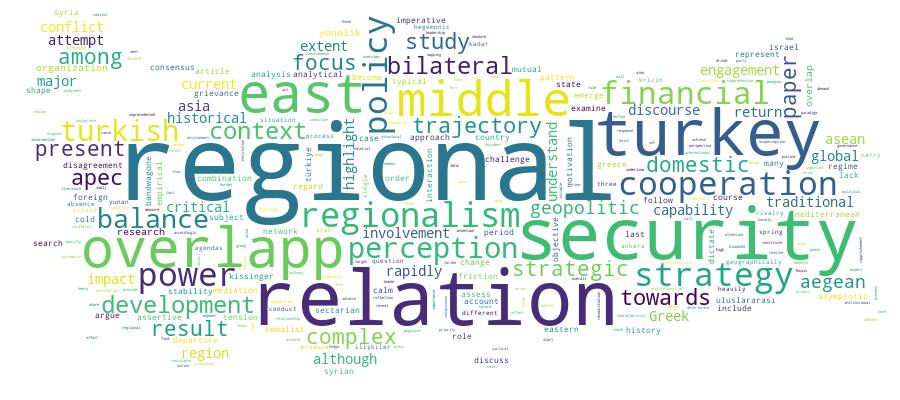This item is non-discoverable
Yfantıs, Konstantınos
Loading...

Profile URL
Name Variants
Yfantıs, Konstantınos
K.,Yfantıs
K. Yfantıs
Konstantınos, Yfantıs
Yfantis, Konstantinos
K.,Yfantis
K. Yfantis
Konstantinos, Yfantis
Ifantis, Kostas
Ifantıs, Kostas
K.,Yfantıs
K. Yfantıs
Konstantınos, Yfantıs
Yfantis, Konstantinos
K.,Yfantis
K. Yfantis
Konstantinos, Yfantis
Ifantis, Kostas
Ifantıs, Kostas
Job Title
Doç. Dr.
Email Address
Konstantınos.ıfantı[email protected]
Main Affiliation
International Relations
Status
Former Staff
Website
ORCID ID
Scopus Author ID
Turkish CoHE Profile ID
Google Scholar ID
WoS Researcher ID
Sustainable Development Goals
15
LIFE ON LAND

0
Research Products
16
PEACE, JUSTICE AND STRONG INSTITUTIONS

0
Research Products
14
LIFE BELOW WATER

0
Research Products
6
CLEAN WATER AND SANITATION

0
Research Products
3
GOOD HEALTH AND WELL-BEING

0
Research Products
17
PARTNERSHIPS FOR THE GOALS

2
Research Products
4
QUALITY EDUCATION

0
Research Products
2
ZERO HUNGER

0
Research Products
10
REDUCED INEQUALITIES

0
Research Products
7
AFFORDABLE AND CLEAN ENERGY

0
Research Products
13
CLIMATE ACTION

0
Research Products
1
NO POVERTY

0
Research Products
9
INDUSTRY, INNOVATION AND INFRASTRUCTURE

0
Research Products
12
RESPONSIBLE CONSUMPTION AND PRODUCTION

0
Research Products
8
DECENT WORK AND ECONOMIC GROWTH

0
Research Products
11
SUSTAINABLE CITIES AND COMMUNITIES

0
Research Products
5
GENDER EQUALITY

0
Research Products

This researcher does not have a Scopus ID.

This researcher does not have a WoS ID.

Scholarly Output
11
Articles
5
Views / Downloads
94/1137
Supervised MSc Theses
0
Supervised PhD Theses
2
WoS Citation Count
11
Scopus Citation Count
9
WoS h-index
1
Scopus h-index
1
Patents
0
Projects
0
WoS Citations per Publication
1.00
Scopus Citations per Publication
0.82
Open Access Source
8
Supervised Theses
2
Google Analytics Visitor Traffic
| Journal | Count |
|---|---|
| Uluslararası İlişkiler Dergisi | 2 |
| Perceptions: Journal of International Affairs | 1 |
| Revista Unisci | 1 |
| Journal of Balkan and Near Eastern Studies | 1 |
| Uluslararası İlişkiler | 1 |
Current Page: 1 / 2
Competency Cloud


